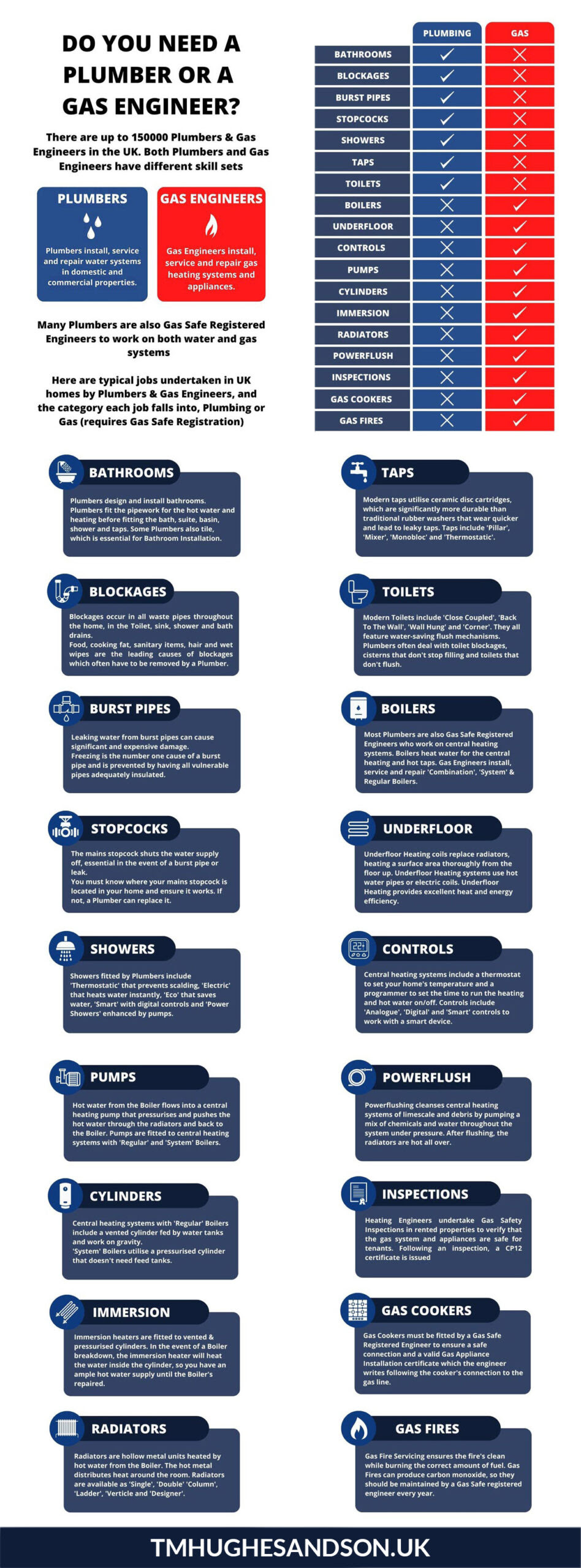This is a sponsored post by TM Hughes & Son. For those interested, you can submit a request by contacting OMG Infographics.
Up to 150000 Plumbers & Gas Engineers are operating in the United Kingdom (UK). Both Plumbers and Gas Engineers have different skills that crossover into both trades.
Plumbers install, service, and repair water systems in homes and commercial premises.
Gas Engineers install, service, and repair gas central heating systems and appliances in homes and commercial settings.
Plumbers don’t need formal qualifications or licenses to work as Plumber (although courses are available). Instead, plumbers usually learn on the job as a ‘Plumbers mate’.
Gas Engineers require formal qualifications and Gas Safe Registration to work on gas systems.
(Never use a Gas Engineer who isn’t Gas Safe Registered. Always ask to see their Gas Safe ID before work commences)
Most Plumbers are also Gas Safe Registered Engineers working on water and gas systems.
Plumbers are often called out to remove blockages and repair leaks. Blockages occur in all waste pipes throughout the home, in the toilet, sink, shower, and bath drains. Leaks can occur anywhere in the Plumbing system and cause significant and expensive damage.
Plumbers install and maintain all Plumbing parts in the home, including water pipes, waste pipes, sinks, toilets, basins, taps and showers.
Gas Safe Registered Engineers work on central heating systems. Their main job is to install, service and repair Boilers.
Gas Engineers also work on all other parts of the central heating system, including water pipes, gas pipes, water cylinders, tanks, controls, underfloor heating pipes, radiators and valves.
As a general rule of thumb, for any work in your home involving water or waste, you will require a Plumber, and for any work in your home involving gas or heating systems, you will need a Gas engineer.

